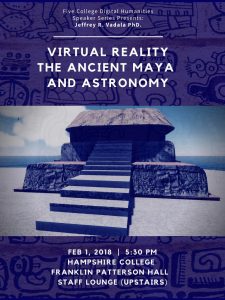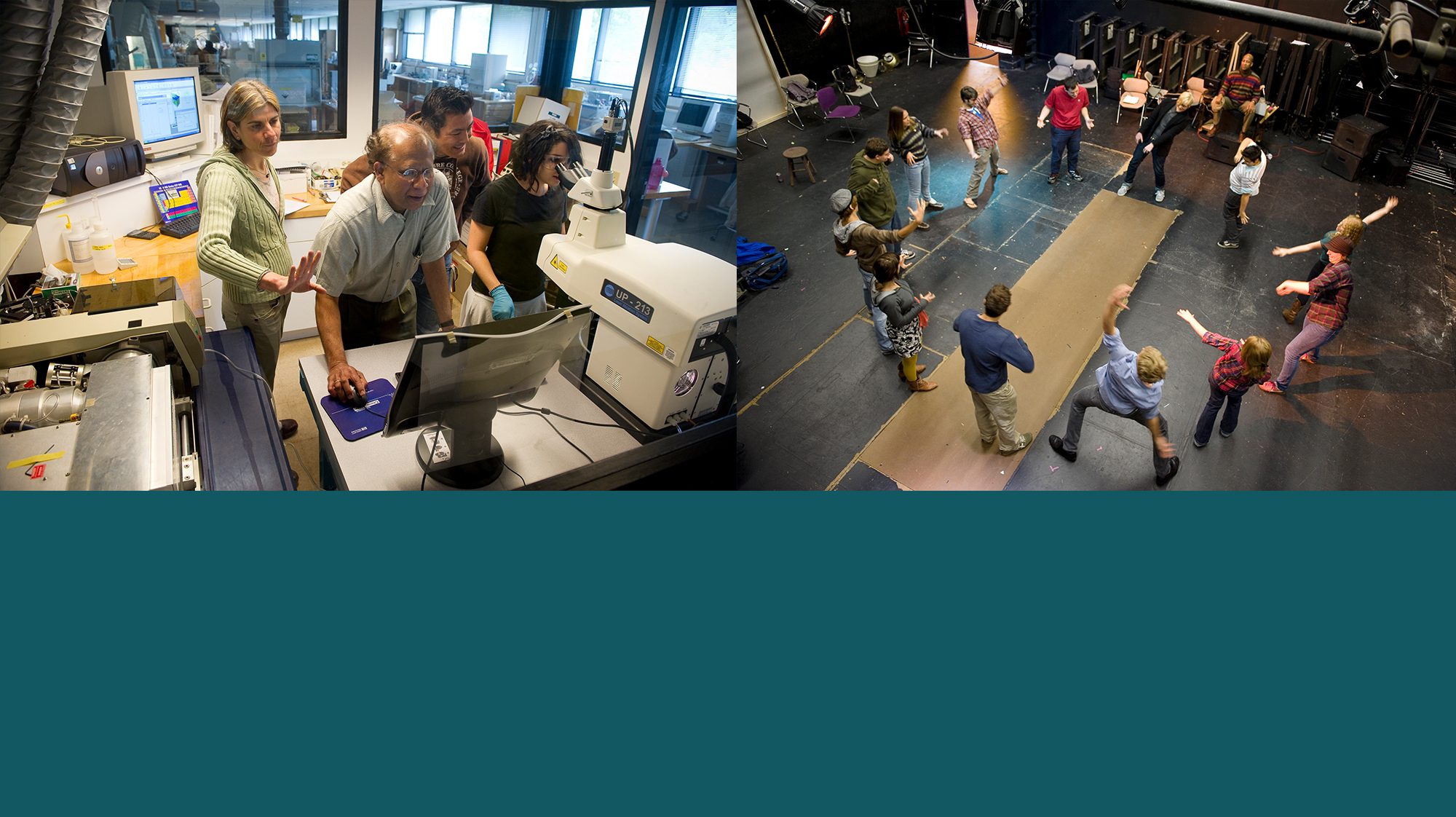 The Five College Digital Humanities Program is pleased to announce that Dr. Jeffrey R Vadala, one of our Postdoctoral Fellows in Blended Learning and Digital Humanities, will be continuing our Five College Digital Humanities speaker series.
The Five College Digital Humanities Program is pleased to announce that Dr. Jeffrey R Vadala, one of our Postdoctoral Fellows in Blended Learning and Digital Humanities, will be continuing our Five College Digital Humanities speaker series.
Dr. Jeffrey R. Vadala’s talk, “Virtual Reality, the Ancient Maya, and Astronomy” will be given on February 1, 5:30 PM at Hampshire College in Franklin Patterson Hall in the Staff Lounge (upstairs). This event is open to the public.
Among New and Old World ancient societies, the ancient Maya are known to have one of the most complex and precise systems of understanding, tracking, and observing the flow of time. Using maps and mathematical calculations, archaeologists, art historians, and epigraphers have found that these temporal systems were developed through the use of architectural calendars. Over time, these constructions developed into monumental observatories that were used to track celestial phenomena and host political ritual events.
Primarily focused on functional elements of architecture, previous studies produced highly generalized interpretations without considering how ancient Maya people experienced and interacted with both the natural and built landscape’s that contextualized the locations of these observatories. Focusing on the human experience of both the built and natural landscape, this study uses computer modeled virtual reality (VR) 3D interactive simulations to explore how the Maya interacted with their local environment and produced local astronomical knowledge at the Preclassic site of Cerro Maya (formerly known as Cerros). Researchers used fully interactive virtual reality simulations of Cerro Maya to identify two previously unknown early Maya architectural solar alignments. Additionally, by considering how these architectural alignments were transformed as Cerro Maya grew from a small seaside village into a monumental trading center, VR simulations made it possible to explore how local history and astronomical knowledge were produced and experienced differently by the various competing social orders at the time. As astronomical knowledge developed alongside society at Cerro Maya, it would come to play an important role in the development of hierarchy and social organization. Beyond archaeology, this research demonstrates that virtual reality simulations can be a powerful analytical tool for digital humanities scholars that study or explore human landscapes both built and natural.
Contact Jeffrey Vadala at jvadala@hampshire.edu or learn more at www.jeffreyvadala.com
|
|

